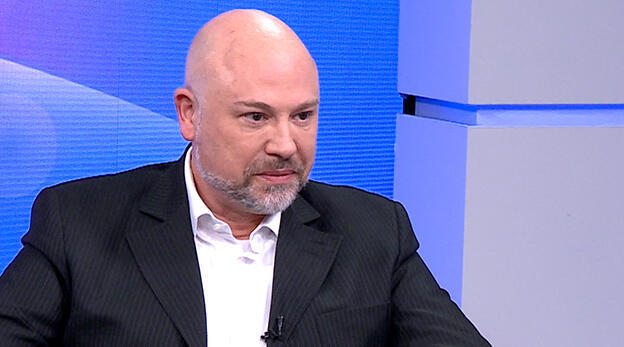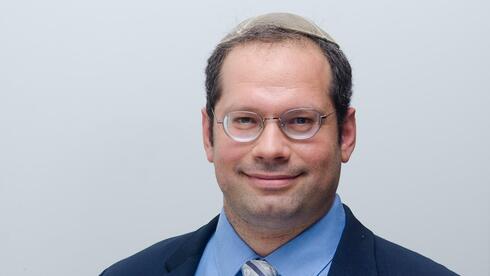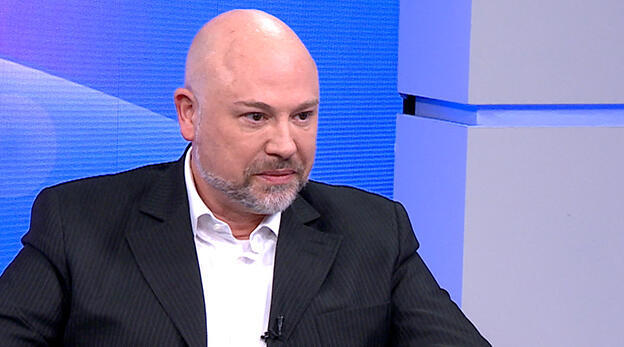
National Economic Conference
Edeltech executive VP: "There’s a duopoly in the natural gas market"
According to Niv Sever, "the duopoly of the gas companies harms competition in the market and the Electricity Authority limits the competition between the private producers." He also explains why Edeltech will not allow the expansion of the Dorad power station
"The duopoly of the gas companies harms competition in the market," says Niv Sever, executive VP of Edeltech, in a sharp criticism of what is happening in the Israeli energy market in an interview as part of the National Economic Conference of Calcalist and Bank Leumi. According to him, Edeltech will not allow the expansion of the Dorad station - one The main power stations on which the Israeli energy economy will rely in the future - because the station will prevent Edeltech from developing other stations in the future, with larger holdings for the company.
Edeltech is a company that is less known to the general public in Israel. What do you do?
"Edeltech is a company that has existed for about three decades. We actually initiated the opening of the electricity market to competition in the early 2000s when the company's founder and chairman Ori Edelsburg thought there was room for competition in the electricity production market in Israel. Since then we have established three power plants and acquired, with partners, two additional power plants. And today we are actually responsible for almost 20% of the natural gas electricity production capacity in Israel."
According to the development plan of Noga, the electricity system management company, 6-7 new power plants are needed in the next decade, but the construction of the plants continues to be delayed.
"The question is relevant on several levels, especially in this period we are in today. Today we have an understanding that the key is having a "surplus" - a safety factor or a risk factor. We have also seen the security situation and its effects on the need for such redundancy, certainly in infrastructure and energy. On the one hand, we are interested in continuing this change. On the other hand, we have difficulties in this regard with regard to regulation. Instead of the regulation creating a situation that will encourage the establishment of additional plants, the approach according to which quotas are allocated to the stations creates a situation where each player has to fight in a certain way and decide where to put their cards.
"The regulator has decided that there will be no player that will hold more than 20% in the natural gas electricity production market, which is a reasonable and normal thing. But the problem is that the regulator also decided on something unprecedented - a 5% holding in a power plant is enough for you to be considered to have control over the entire power plant. For example , we own less than 20% of the station's production capacity, and it eats up all the market share that we can hold. As a result, we will not expand such plants. Therefore, I want to say that a station that can supply close to 5% of the electricity in Israel will not be built because the current regulation makes it impossible for us."
The danger in not establishing stations is an increase in the minutes of unavailability, that is, the amount of time per year that electricity is not supplied. What's the harm in that?
"There is an estimate that says that the damage from not supplying electricity to the economy for an hour is about NIS 750 million. This is a huge cost. A month ago, when there was almost a power outage, there was a shift in production to coal and diesel, the production cost of which is 2 to 15 times higher than gas production. In other words, the cost per minute in which gas is not supplied is heavy and is directly derived from the amount of redundancy that exists. There is no doubt that there is a need to increase the redundancy because the public is less and less willing to tolerate the absence of essential services. We are becoming more and more spoiled, and want more and more comfort and basic needs and the lack of electricity makes it impossible to provide them.
"Therefore, this problem is inherent and significant in our economy today. There should be a fairly substantial change that will more freely allow the establishment of more stations and greater competition and first and foremost the expansion of the existing stations. I can tell you that in 2-3 of our stations this is possible should the regulatory limitations that exist today be removed."
The criticism that is heard in the energy market is that there is actually no competition between the private electricity producers.
"If you want to lower the price, you have to increase the supply and lower the price of the main inputs. In electricity production, the main inputs are the price of gas. 70% of the price of electricity is the price of gas, and in practice we have a duopoly. You have to understand that everything starts with this input. As there are alternatives for selling it abroad, the chance of seeing a real drop in electricity prices is decreasing. The need to see an increase in supply also connects to what I said about surplus in the market. The more you create an oversupply, the less damage you will see during an emergency like you see now - whether it is an environmental, economic or security emergency. Naturally, there will also be a drop in price. The things depend on each other.
"There are four stations that have been released and their sale has been completed as part of the reform, the fifth station (Reading) has not been sold. I would like to mention that there is another station - a sixth - that on the one hand the state is privatizing, and on the other hand, it owns the main shares in it. Dorad, which we own, in which the main shareholder is the Eilat Ashkelon Pipeline Company company, an arm of the State of Israel."














